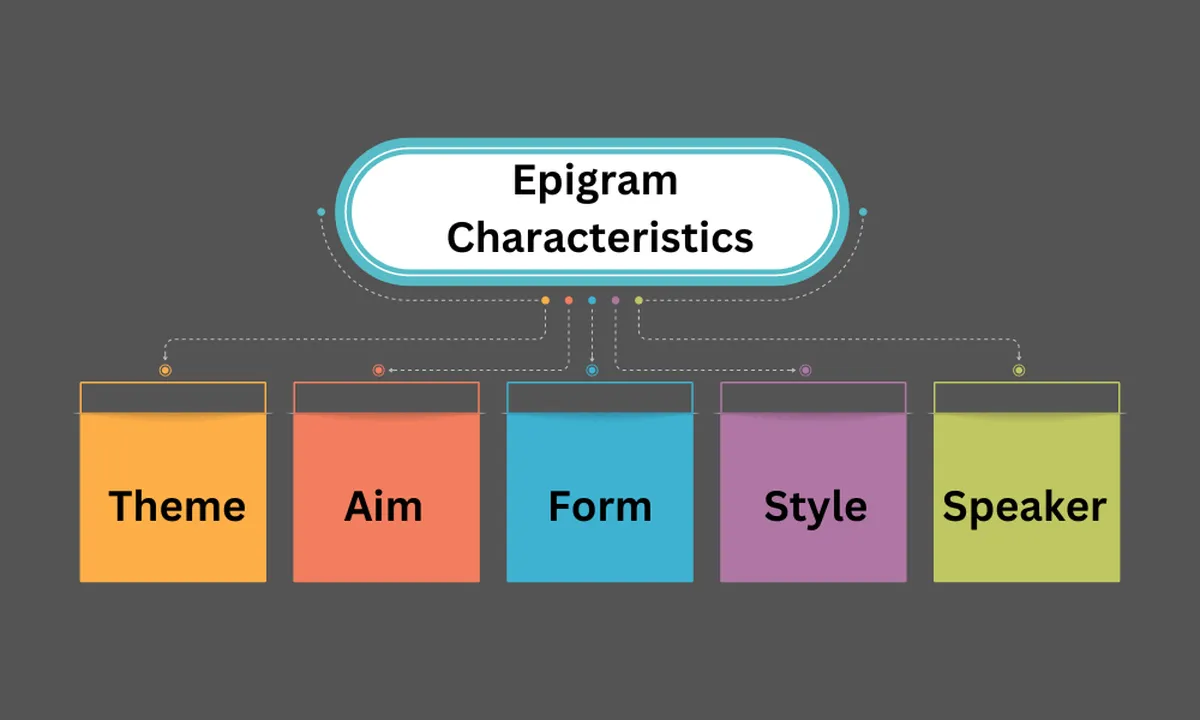What is epigram? Have you ever heard about it?
Epigrams have been around for centuries, and they are still relevant today. Even you can find some modern epigrams in memes nowadays.
In this article, we will discuss what an Epigram is, its characteristics, and examples of famous epigrams from the classic and modern era.
What is an Epigram?
An epigram is a short, clever, and funny way of saying something. It can be a poem or a sentence, usually said by a popular and famous figure. It usually has a twist or a surprise at the end.
For example, “The more you know, the more you don’t know.”
This is an epigram because it makes you think, and it sounds clever. Epigrams are fun to read and write because they are like little puzzles or jokes.
Epigrams have a long history, dating back to ancient Greece. Poets, philosophers, and writers used them to convey their thoughts and ideas concisely and memorably.
Over time, Epigrams have become a popular literary form, appearing in works of poetry, prose, and drama.
Characteristics of Epigram
Epigram can be concise and witty, often satirical or ironic, and have clever wordplay. On the other hand, it can be serious or humorous, but it always aims to deliver a message in a memorable and impactful way.
To help you understand more deeply about epigrams, you can analyze them from the following perspectives:

- Theme, the epigram focuses on one idea or observation. It can be about anything, such as love, death, politics, religion, morality, etc.
- Aim, the epigram tries to make the reader or listener think, laugh, or feel something. It can be serious, funny, ironic, sarcastic, or satirical.
- Form, the epigram is usually written in verse, with rhyme and rhythm. It can have different lengths and structures, but it is always brief and concise.
- Style, the epigram uses clever words and phrases to create an effect. It often has a contrast or a contradiction that makes the ending unexpected or memorable.
- Speaker, the epigram is usually said by someone or famous figures and documented.
The Difference between Epigram vs Proverb
It’s common to misidentify epigram with proverbs and vice versa. People often quote both of them.
However, slight differences can help you identify whether it is a proverb or an epigram.
Epigram | Proverb |
Statements of someone | Generally passed down from one generation to another |
Short, clever, funny, and sometimes, wise | States general truth; wise |
Example: “That’s one small step for man, one giant leap for mankind” ~Neil Armstrong~ | Example: “Don’t judge a book by it’s cover” |
Epigram Examples
Analyzing some famous epigrams can help you understand how it works. Try to observe what makes these epigrams.
Classic Epigrams
- “The only thing worse than being talked about is not being talked about.” – Oscar Wilde
- “To be or not to be, that is the question.” – William Shakespeare
Modern Epigrams
- “Don’t cry because it’s over, smile because it happened.” – Dr. Seuss
- “Never trust anything that can think for itself if you can’t see where it keeps its brain.” – Arthur Weasley, Harry Potter and the Chamber of Secrets
Political Epigrams
- “Mankind must put an end to war, or war will put an end to mankind.” – John F. Kennedy
- “Power tends to corrupt, and absolute power corrupts absolutely.” – Lord Acton
Social Epigrams
- “The road to hell is paved with good intentions.” – Samuel Johnson
- “No one can make you feel inferior without your consent.” – Eleanor Roosevelt
So, now you know what an epigram is, its characteristics, and examples both from classic and modern one. If you want to create your own epigram, try to have fun with us in our Fun English Course class. We’ll have fun!
